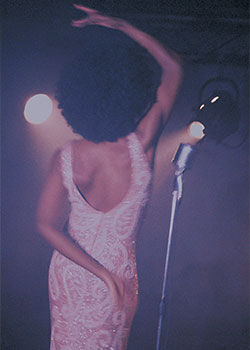University News Last updated 09 September 2013

While artists like Robin Thicke and Miley Cyrus have sparked debate over the use of provocative lyrics and performances, research by Birmingham City University has revealed that the overtly sexualised representation of women in pop culture can negatively impact on the self-esteem of young Black British women.
The study entitled I Wanna Love - an exploration into the role hip hop and dancehall play in regulating and influencing young Black British women's sense of self is by Dionne Taylor, a criminology lecturer and researcher at Birmingham City University. It has been revealed to coincide with the British Science Festival starting this week.
"Rihanna, Nicki Minaj, Lady Gaga, and most recently Miley Cyrus at the MTV video music awards, have been criticised for their on-stage performances which have been deemed as overtly sexual and sending inappropriate messages to young women and girls," said Dionne Taylor, who studies issues relating to gender, identity and Black popular culture.
"Popular culture - in particular hip hop/rap and pop music - is flooded with images of scantily clad women. But conversely there is imbalance of male artists who are often fully clothed and making derogatory references to women."
In a recent backlash, R and B artist Robin Thicke, alongside rappers TI and Pharrell Williams, have been criticised over their number one hit song 'Blurred Lines' which featured sexualised images and provocative lyrics.
Against this ubiquitous cultural backdrop, Dionne explained that her study wanted to analyse the strategies employed by young Black British women, at a crucial stage of the identity-formation, in reaction to representations of Black femininity found within popular culture.
Through 12 in-depth interviews and five follow up interviews and focus groups - taking place between 2009 and 2011 with young girls and women - discussions were posed through a contextual analysis of typically provocative music videos.
"The participants ranged in age from 15 to 29 and were located in Birmingham and London at the time that the initial interviews took place. Participation in this research was voluntary and recruitment was from a press release, posters and email," said Dionne.
"The findings from this study found that the young Black British women were clearly impacted by the representations of women in popular culture. All of the women interviewed made reference to the images being 'normalised' and part and parcel of being a young Black women.
"One of the interviewees, a teenage female, confirmed the complexity of the contradictory nature of researching how young Black women respond to these musical genres. The interviewee explained that she grow up listening to reggae music and later got into Hip Hop.
"Although these musical genres provided for her representations of Black people within the media, she did not feel that they were representative of her - she explains that she felt as though she had to work twice as hard to challenge the image Black women, as being 'very sexual' and 'not selling themselves as being any good'."
The young interviewer reported that boys treated women in their real lives as they see women being treated in the videos. "They speak about us as 'bitches' and refer to us as 'whores' - but we are always there, when they need you."
The "lived experiences" of the female volunteers was explored through the use of Interpretative Phenemological Analysis (IPA), a psychological qualitative research tool which aims to offer insights into how a person, in a given context, makes sense of a particular given experience.